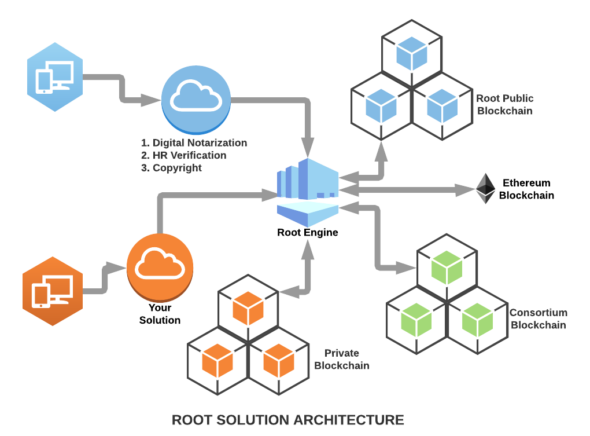
5 Things You Need to Know About Blockchain
After a series of violent twists and turns, cryptocurrencies have entered the global limelight. Yet, many people haven’t got the faintest idea of how things like Bitcoin transactions work. Well, to find an answer to that question, we have to examine the workings of the blockchain, the framework that supports the whole cryptocurrency ecosystem.
Make no mistake: this is a transformative force to be reckoned with. Although it is still in its infancy, it has already subverted expectations and undermined established standards in the businesses and everyday life. It is also poised to continue doing so in the foreseeable future. Here are the key lessons to draw from its disruption and evolution.
Cutting out the middleman
Unlike traditional payment gateways, cryptocurrency transactions play out without the involvement of any intermediaries. In other words, there is no third-party (such as a bank) that guarantees and facilitates a transaction. How is this possible? Well, a higher level of trust exists between the two original parties and there is no one really to abuse that trust. People are in a driver’s seat every step of the way. This is also to say that steep transfer fees are excluded from the equation and that speed of completion is much greater than with conventional transactions. It is a clear win-win.

Transparency and decentralization
Lack of government or other institutional oversight has other implications. Namely, blockchain is a highly decentralized, peer-to-peer network. Think of it as a public, distributed ledger, where transaction data is transmitted between large matrixes of nodes. Not only that, but all these nodes take part in validating data. Every user can see all the activity on the network- people have control over their information and exercise self-sovereignty rights regarding their identity. After all, blockchain is an open-source tech designed to be easily accessible to the public. In fact, there are sites that offer BTC Handelsplattformen, allowing users to compare cryptocurrency platforms so that they can find the right platform for them.
Cryptocurrencies are just the beginning
Despite what many people assume, blockchain is not exclusive to cryptocurrencies. They have been an incubator for it, but that pioneering stage is coming to an end. The potential of this technology is huge and it can be applied to a variety of industries. For instance, there is a heated debate about public blockchain governance. We are also likely to see numerous uses of blockchain in the Internet of Things (IoT) area, as well as for the creation of decentralized data storages.
Lucrative investment
We all know that cryptocurrency market is inherently volatile. Virtual coins undergo meteoric rises overnight, only to crash and burn the next day. However, we should not overlook the long-term horizon. Investors who have been in the game for years have all achieved jaw-dropping returns. This is due to the fact that from humble beginnings, the value of major virtual coins has eventually increased beyond imagination. So, provided that you do your homework and follow trusted sources of blockchain news, this could be a perfect investment opportunity for you.

Strong safety credentials
Furthermore, note that there is a variety of safety handles that protect the user’s privacy and their assets. Once the two parties agree upon a transaction, a validation process takes place. If everything adds up and data sets match, the transaction is added to the block in the chain, which has a unique sequence. That means that nobody can tamper with it anymore and that the process itself is irreversible. There is also no central point to be exploited, which makes blockchain resilient to fraud and hacker attacks. Finally, privacy is safeguarded via pseudonymity and all transactions are cryptographically secured.
Time to join the block
The blockchain is here to stay and make an even bigger impact on the way we live and do business. As an underpinning system built by the people for the people, it offers a wide array of revolutionary benefits. Hence, it is expected to reshape industries, restore trust between consumers and business, boost cybersecurity, and add value to people’s lives. Everything that involves moving and managing data will probably be governed by blockchain principles in the future. Of course, awareness and education play a vital role: staying in the know and up to date is the key to reaping amazing benefits from this technology.